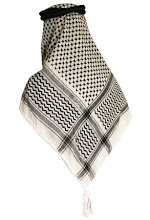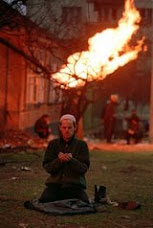We now-a-days hearfrom a no. of people that only hair is to be considered into Aurah not thwe face.
A woman can show her face.
But their very concept goes against the purpose of observing Hijab.
Face is the focal point of beauty.
Here are some refutations regarding the claims that Allah does not orders to cover up the face:
1 – Evidence from the Qur’aan
(i)
Allaah says (interpretation of the meaning):
“And tell the believing women to lower their gaze (from looking at forbidden things), and protect their private parts (from illegal sexual acts) and not to show off their adornment except only that which is apparent (like both eyes for necessity to see the way, or outer palms of hands or one eye or dress like veil, gloves, headcover, apron), and to draw their veils all over Juyoobihinna (i.e. their bodies, faces, necks and bosoms) and not to reveal their adornment except to their husbands, or their fathers, or their husband’s fathers, or their sons, or their husband’s sons, or their brothers or their brother’s sons, or their sister’s sons, or their (Muslim) women (i.e. their sisters in Islam), or the (female) slaves whom their right hands possess, or old male servants who lack vigour, or small children who have no sense of feminine sex. And let them not stamp their feet so as to reveal what they hide of their adornment. And all of you beg Allaah to forgive you all, O believers, that you may be successful”
[al-Noor 24:31]
The evidence from this verse that hijab is obligatory for women is as follows:
(a) Allaah commands the believing women to guard their chastity, and the command to guard their chastity also a command to follow all the means of doing that. No rational person would doubt that one of the means of doing so is covering the face, because uncovering it causes people to look at it and enjoy its beauty, and thence to initiate contact. The Messenger of Allaah (peace and blessings of Allaah be upon him) said: “The eyes commit zina and their zina is by looking…” then he said, “… and the private part confirms that or denies it.” Narrated by al-Bukhaari, 6612; Muslim, 2657.
If covering the face is one of the means of guarding one’s chastity, then it is enjoined, because the means come under the same ruling as the ends.
(b) Allaah says (interpretation of the meaning): “…and to draw their veils all over Juyoobihinna (i.e. their bodies, faces, necks and bosoms) …”. The jayb (pl. juyoob) is the neck opening of a garment and the khimaar (veil) is that with which a woman covers her head. If a woman is commanded to draw her veil over the neck opening of her garment then she is commanded to cover her face, either because that is implied or by analogy. If it is obligatory to cover the throat and chest, then it is more appropriate to cover the face because it is the site of beauty and attraction.
(c) Allaah has forbidden showing all adornment except that which is apparent, which is that which one cannot help showing, such as the outside of one's garment. Hence Allaah says (interpretation of the meaning): “…except only that which is apparent …” and He did not say, except that which they show of it. Some of the salaf, such as Ibn Mas’ood, al-Hasan, Ibn Sireen and others interpreted the phrase “except only that which is apparent” as meaning the outer garment and clothes, and what shows from beneath the outer garment (i.e., the hem of one’s dress etc.). Then He again forbids showing one’s adornment except to those for whom He makes an exception. This indicates that the second adornment mentioned is something other than the first adornment. The first adornment is the external adornment which appears to everyone and cannot be hidden. The second adornment is the inward adornment (including the face). If it were permissible for this adornment to be seen by everyone, there would be no point to the general wording in the first instance and this exception made in the second.
(d) Allaah grants a concession allowing a woman to show her inward adornments to “old male servants who lack vigour”, i.e. servants who are men who have no desire, and to small children who have not reached the age of desire and have not seen the ‘awrahs of women. This indicates two things:
1 – That showing inward adornments to non-mahrams is not permissible except to these two types of people.
2 – That the reason for this ruling is the fear that men may be tempted by the woman and fall in love with her. Undoubtedly the face is the site of beauty and attraction, so concealing it is obligatory lest men who do feel desire be attracted and tempted by her.
(e) The words (interpretation of the meaning): “And let them not stamp their feet so as to reveal what they hide of their adornment” mean that a woman should not stamp her feet so as to make known hidden adornments such as anklets and the like. If a woman is forbidden to stamp her feet lest men be tempted by what they hear of the sound of her anklets etc., then what about uncovering the face?
Which is the greater source of temptation – a man hearing the anklets of a woman whom he does not know who she is or whether she is beautiful, or whether she is young or old, or ugly or pretty? Or his looking at a beautiful youthful face that attracts him and invites him to look at it?
Every man who has any desire for women will know which of the two temptations is greater and which deserves to be hidden and concealed.
(ii)
Allaah says (interpretation of the meaning):
“And as for women past childbearing who do not expect wedlock, it is no sin on them if they discard their (outer) clothing in such a way as not to show their adornment. But to refrain (i.e. not to discard their outer clothing) is better for them. And Allaah is All‑Hearer, All‑Knower”
[al-Noor 24:60]
The evidence from this verse is that Allaah states that there is no sin on old women who have no hope of marriage because men have no desire for them, due to their old age (if they discard their outer clothing), subject to the condition that their intention in doing so is not to make a wanton display of themselves. The fact that this ruling applies only to old women indicates that the ruling is different for young women who still hope to get married. If the ruling on discarding the outer clothing applied to all, there would be no point in singling out old women here.
The phrase “in such a way as not to show their adornment” offers further proof that hijab is obligatory for young women who hope to marry, because usually when they uncover their faces the intention is to make a wanton display (tabarruj) and to show off their beauty and make men look at them and admire them etc. Those who do otherwise are rare, and the ruling does not apply to rare cases.
(iii)
Allaah says (interpretation of the meaning):
“O Prophet! Tell your wives and your daughters and the women of the believers to draw their cloaks (veils) all over their bodies (i.e. screen themselves completely except the eyes or one eye to see the way). That will be better, that they should be known (as free respectable women) so as not to be annoyed. And Allaah is Ever Oft‑Forgiving, Most Merciful”
[al-Ahzaab 33:59]
Ibn ‘Abbaas (may Allaah be pleased with him) said: “Allaah commanded the believing women, if they go out of their houses for some need, to cover their faces from the top of their heads with their jilbaabs, and to leave one eye showing.”
The tafseer of the Sahaabah is evidence, indeed some of the scholars said that it comes under the same ruling as marfoo’ reports that go back to the Prophet (peace and blessings of Allaah be upon him).
The comment “and leave one eye showing” is a concession because of the need to see the way; if there is no need for that then the eye should not be uncovered.
The jilbaab is the upper garment that comes above the khimaar; it is like the abaya.
(iv) Allaah says (interpretation of the meaning):
“It is no sin on them (the Prophet’s wives, if they appear unveiled) before their fathers, or their sons, or their brothers, or their brother’s sons, or the sons of their sisters, or their own (believing) women, or their (female) slaves. And (O ladies), fear (keep your duty to) Allaah. Verily, Allaah is Ever All‑Witness over everything”
[al-Ahzaab 33:55]
Ibn Katheer (may Allaah have mercy on him) said: When Allaah commanded the women to observe hijab in front of non-mahram men, he explained that they did not have to observe hijab in front of these relatives, as He explained that they are exempted in Soorat al-Noor where He said (interpretation of the meaning): “and not to reveal their adornment except to their husbands…”
2 – Evidence from the Sunnah that it is obligatory to cover the face
(i)
The Prophet (peace and blessings of Allaah be upon him) said: “When any one of you proposes marriage to a woman, there is no sin on him if he looks at her, rather he should look at her for the purpose of proposing marriage even if she is unaware.” Narrated by Ahmad. The author of Majma’ al-Zawaa’id said: its men are the men of saheeh.
The evidence here is the fact that the Prophet (peace and blessings of Allaah be upon him) said there is no sin on the man who is proposing marriage, subject to the condition that his looking be for the purpose of proposing marriage. This indicates that the one who is not proposing marriage is sinning if he looks at a non-mahram woman in ordinary circumstances, as is the one who is proposing marriage if he looks for any purpose other than proposing marriage, such as for the purpose of enjoyment etc.
If it is said that the hadeeth does not clearly state what is being looked at, and it may mean looking at the chest etc, the response is that the man who is proposing marriage looks at the face because it is the focus for the one who is seeking beauty, without a doubt.
(ii)
When the Prophet (peace and blessings of Allaah be upon him) commanded that women should be brought out to the Eid prayer place, they said, “O Messenger of Allaah, some of us do not have jilbaabs.” The Prophet (peace and blessings of Allaah be upon him) said, “Let her sister give her one of her jilbaabs to wear.” Narrated by al-Bukhaari and Muslim.
This hadeeth indicates that the usual practice among the women of the Sahaabah was that a woman would not go out without a jilbaab, and that if she did not have a jilbaab she would not go out. The command to wear a jilbaab indicates that it is essential to cover. And Allaah knows best.
(iii)
It was narrated in al-Saheehayn that ‘Aa’ishah (may Allaah be pleased with her) said: The Messenger of Allaah (peace and blessings of Allaah be upon him) used to pray Fajr and the believing women would attend the prayer with him, wrapped in their veils, then they would go back to their homes and no one would recognize them because of the darkness. She said: If the Messenger of Allaah (peace and blessings of Allaah be upon him) saw from the women what we have seen, he would have prevented them from coming to the mosques as the Children of Israel prevented their women.
A similar report was also narrated by ‘Abd-Allaah ibn Mas’ood (may Allaah be pleased with him).
The evidence from this hadeeth covers two issues:
1 – Hijaab and covering were the practice of the women of the Sahaabah who were the best of generations and the most honourable before Allaah.
2 – ‘Aa’ishah the Mother of the Believers and ‘Abd-Allaah ibn Mas’ood (may Allaah be pleased with them both), who were both known as scholars with deep insight, said that if the Messenger (peace and blessings of Allaah be upon him) had seen from women what they had seen, he would have prevented them from coming to the mosques. This was during the best generations, so what about nowadays?!
(iv)
It was narrated that Ibn ‘Umar said: The Messenger of Allaah (peace and blessings of Allaah be upon him) said: “Whoever lets his garment drag out of pride, Allaah will not look at him on the Day of Resurrection.” Umm Salamah said, “What should women do with their hems?” He said, “Let it hang down a handspan.” She said, “What if that shows her feet?” He said, “Let it hang down a cubit, but no more than that.” Narrated by al-Tirmidhi; classed as saheeh by al-Albaani in Saheeh al-Tirmidhi.
This hadeeth indicates that it is obligatory for women to cover their feet, and that this was something that was well known among the women of the Sahaabah (may Allaah be pleased with them). The feet are undoubtedly a lesser source of temptation than the face and hands, so a warning concerning something that is less serious is a warning about something that is more serious and to which the ruling applies more. The wisdom of sharee’ah means that it would not enjoin covering something that is a lesser source of temptation and allow uncovering something that is a greater source of temptation. This is an impossible contradiction that cannot be attributed to the wisdom and laws of Allaah.
(v)
It was narrated that ‘Aa’ishah said: The riders used to pass by us when we were with the Messenger of Allaah (peace and blessings of Allaah be upon him) in ihraam. When they came near us we would lower our jilbaabs from our heads over our faces, and when they had passed by we would uncover our faces. Narrated by Abu Dawood, 1562.
The words “When they came near us we would lower our jilbaabs from our heads over our faces” indicate that it is obligatory to cover the face, because what is prescribed in ihraam is to uncover it. If there was no strong reason to prevent uncovering it, it would be obligatory to leave it uncovered even when the riders were passing by. In other words, women are obliged to uncover their faces during ihraam according to the majority of scholars, and nothing can override something that is obligatory except something else that is also obligatory. If it were not obligatory to observe hijab and cover the face in the presence of non-mahram men, there would be no reason not to uncover it in ihraam. It was proven in al-Saheehayn and elsewhere that a woman in ihraam is forbidden to wear the niqaab (face veil) and gloves.
Shaykh al-Islam Ibn Taymiyah said: This is one of the things which indicate that the niqaab and gloves were known among women who were not in ihraam, which implies that they covered their faces and hands.
These are nine points of evidence from the Qur’aan and Sunnah.
The tenth is:
Rational examination and analogy which form the basis of this perfect sharee’ah, which aims to help people achieve what is in their best interests and encourages the means that lead to that, and to denounce evil and block the means that lead to it.
If we think about unveiling and women showing their faces to non-mahram men, we will see that it involves many bad consequences. Even if we assume that there are some benefits in it, they are very few in comparison with its negative consequences. Those negative consequences include:
1 – Fitnah (temptation). By unveiling her face, a woman may be tempted to do things to make her face look more beautiful. This is one of the greatest causes of evil and corruption.
2 – Taking away haya’ (modesty, shyness) from women, which is part of faith and of a woman’s nature (fitrah). Women are examples of modesty, as it was said, “more shy than a virgin in her seclusion.” Taking away a woman’s modesty detracts from her faith and the natural inclination with which she was created.
3 – Men may be tempted by her, especially if she is beautiful and she flirts, laughs and jokes, as happens in the case of many of those who are unveiled. The Shaytaan flows through the son of Adam like blood.
4 – Mixing of men and women. If a woman thinks that she is equal with men in uncovering her face and going around unveiled, she will not be modest and will not feel too shy to mix with men. This leads to a great deal of fitnah (temptation) and widespread corruption. Al-Tirmidhi narrated (5272) from Hamzah ibn Abi Usayd from his father that he heard the Messenger of Allaah (peace and blessings of Allaah be upon him) say, when he was coming out of the mosque and he saw men mingling with women in the street; the Messenger of Allaah (peace and blessings of Allaah be upon him) said to the women, “Draw back, and do not walk in the middle of the road; keep to the sides of the road.” Then the women used to keep so close to the walls that their garments would catch on the walls because they kept so close to them.
Classed as hasan by al-Albaani in Saheeh al-Jaami’, 929
Adapted from the words of Shaykh Muhammad ibn ‘Uthaymeen (may Allaah have mercy on him) in Risaalat al-Hijaab.




















